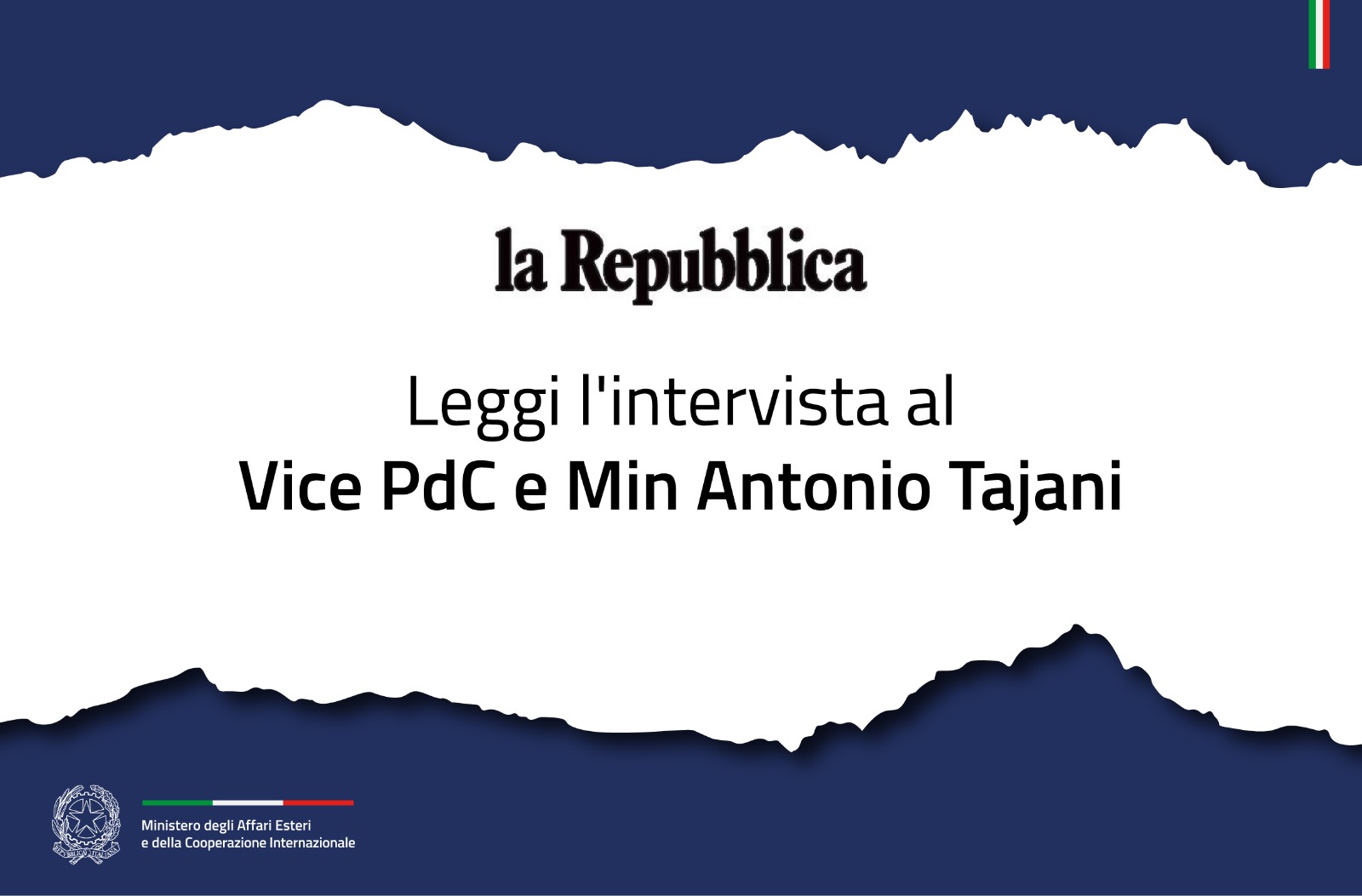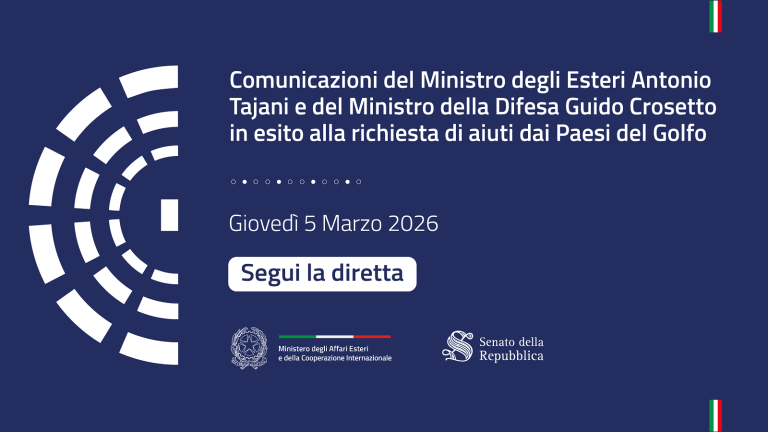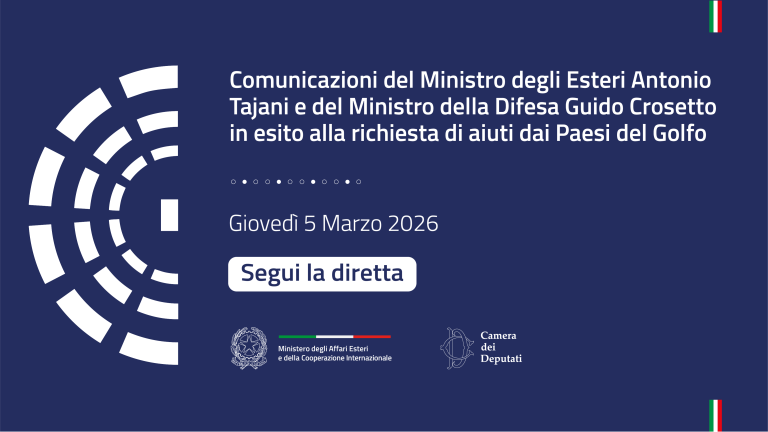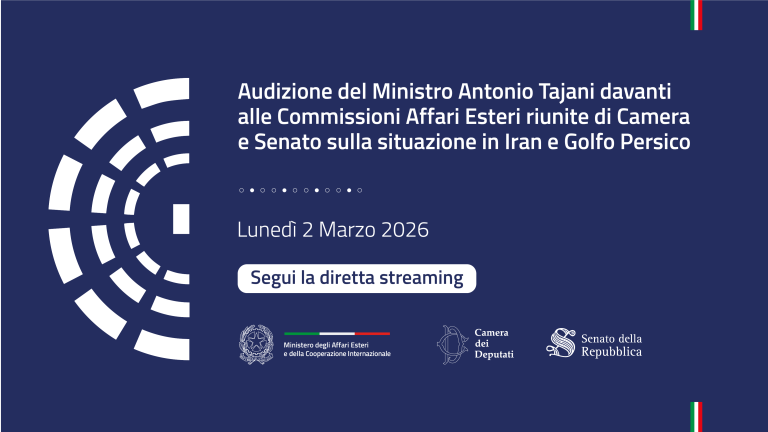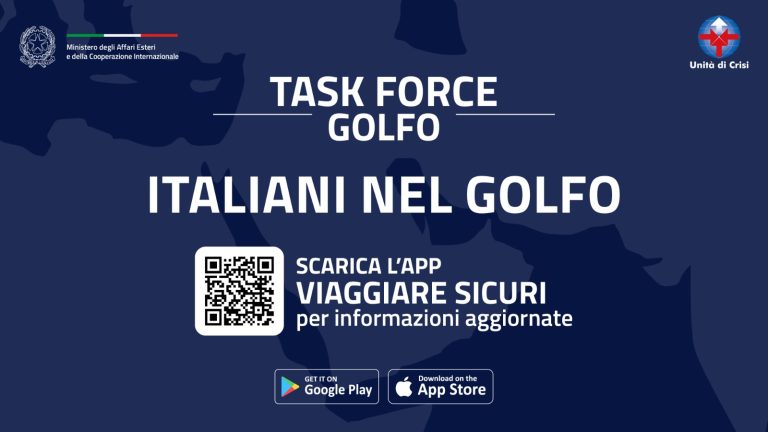Before the interview, Antonio Tajani shows us the grand hall of the Farnesina, which just two days ago became a nave for the Holy Week Mass. Today, however, the Ministry of Foreign Affairs has become the driving force behind talks between the United States and Iran, hosted in Rome. “We are a capital of peace,” he says. “A country capable of dialogue with everyone – staying true to our principles but open to mediation”.
Minister Tajani, how did this round of talks go? Do you believe in a potential agreement between the two sides?
“We encourage an agreement on Iran’s nuclear programme. We believe it is achievable. Tehran’s Foreign Minister confirmed to me the decision not to build a nuclear weapon. ‘We will continue with the civil programme’, that is their position – not for military purposes. But there’s one point I think is crucial”.
Which one?
“Iran has said it is willing to allow the necessary inspections at nuclear sites to resume. Strengthening the role of the IAEA (the UN’s nuclear watchdog) in monitoring those sites would help ensure that no nuclear weapon is being developed. There are also ongoing discussions around a moratorium on uranium enrichment. IAEA Director General Rafael Grossi, whom I also met yesterday, is a person of great balance and experience. We support the continuation of IAEA monitoring. Finding an agreement would be essential. In this, the deep involvement of the Trump administration is a decisive and reassuring factor”.
Will there be more meetings in Rome?
“We are ready to host further meetings in the future, if they prove helpful to the negotiations”.
Another tense scenario is Ukraine. Yesterday, Putin announced a two-day Easter truce. How do you interpret this move?
“Any sign pointing towards peace is important, as I have always said while encouraging all sides to negotiate. It’s unclear how Russia will respect such a brief truce, while Putin must ultimately decide to end this war – a war he started. He must respond positively to President Trump’s requests and make a real ceasefire possible. Easter is only one day – peace must be just and enduring”.
But the Sumy massacre happened only days ago. Can Putin be trusted?
“We have always supported American efforts toward peace. Zelensky is willing to reach an agreement – the problem remains Putin, who does not respond to US initiatives”.
Everything seems to revolve around Trump’s role. Meloni has just returned from the White House. What’s your assessment?
“Politically, a successful mission. A visit confirming Italy’s good relationship with both the United States and Europe. The proposed idea of a US–EU meeting is proof of that. If Trump comes to meet European leaders in Rome, our country becomes central to global peace – just as it is today for the Iran talks – and to transatlantic dialogue”.
Do you really believe Trump will meet with von der Leyen?
“It’s possible. It happened years ago, that he met the heads of the European institutions in Brussels: I was there with Juncker and Tusk”.
Could it be that Trump is using Italy as a wedge to split European unity?
“Italy is not acting against other EU countries. Meloni is in constant contact with Ursula and keeps her informed about every move. And Trump said so himself during the bilateral meeting: an agreement with the EU will be reached – he expressed his willingness”.
But there’s been no progress on tariffs.
“The first step was political. Moreover, I urge people not to underestimate another factor: soon Germany will have a new Chancellor – Merz. He will become one of Europe’s key political figures. For us in the EPP, this is another development that strengthens our position”.
You’re pushing for a political pact between Meloni and Merz, between EPP and ECR. Is the goal to strengthen the US–EU negotiations and also sideline the Euroscepticism of the Patriots?
“The relationship between Italy and Germany has always been strong. Think of the DC–CDU connection, of De Gasperi. EPP and ECR are different forces but already work together. They are part of the European constitutional arc, if we may call it that. Meloni recently met with Weber. I have always said it is essential to broaden the cooperation to include Conservatives and to work together on economic policy matters – to make real progress on issues like the Green Deal and migration”.
Do you also see this joint effort as a way to counter French activism, which never seems to align with Meloni’s approach?
“You know, our relationship with Berlin is strong also because of commercial ties and economic interdependence. We have shared interests”.
Despite Salvini, who continues to attack von der Leyen and urges Meloni to deal with Trump independently of Europe. Is this a problem?
“We have two guiding stars in foreign policy: Europe and the United States. Of course, we cannot disregard Europe – Berlusconi himself always supported this”.
Returning to the US visit: Did Trump ask Italy to adopt Starlink? Do you prefer it over the European satellite project?
“As far as I know, it wasn’t discussed. In any case, I have a ‘secular’ view on Starlink. In Europe, I worked to revive the Galileo project, which is in part my own brainchild. We need pragmatism: we’ll choose whatever best guarantees our security”.
And what about China? Have the US asked us to leave the Global Strategic Partnership? Is there room for manoeuvre?
“We’ve exited the Belt and Road Initiative because we’re not part of that strategic vision. But we remain within the Global Strategic Partnership with Beijing: we continue to engage in dialogue and maintain positive commercial relations with China. Strategically, however, we support IMEC – the India–Middle East–Europe Corridor – what we call the ‘Cotton Route’”.
Trump also said: scrap the web tax. Is that possible?
“For now, no”.
Forza Italia held back on applying golden power to Unicredit’s bid for Bpm. As a party that supports free markets, do you not find the government’s interventionism in the banking sector excessive?
“We had three concerns. First, a matter of principle: we support the free market. Second, legal concerns about the basis of the decision. Third, practical implications: we’re worried about Italian businesses in Russia. There are 200 companies operating there in compliance with sanctions – the sudden withdrawal of such an important bank from Russia would create practical issues for them, such as salary payments, transactions, and pensions. By securing a nine-month extension, we also protected those businesses. That’s why I approved it”.
Let’s talk about Rai. Italy is under EU scrutiny. While we wait for the Freedom Act, Viale Mazzini is paralysed by internal vetoes and opposition protests. What’s your plan to resolve the deadlock?
“Excuse me – the vetoes are coming from the Left. If there’s no president, it’s their fault. We’ve always voted for Rai presidents from the other side too. There’s no reason to block Simona Agnes’s appointment – she’s a moderate, independent candidate, daughter of one of Rai’s founding figures. If the opposition continues like this, we’ll move forward: we’ll launch the reform and vote on the appointments. Agnes remains our candidate. If she’s elected, everything will move forward”.
Where will you celebrate 25 April, the anti-fascist Liberation Day?
“As always, at the Fosse Ardeatine. To pay tribute to the innocent victims, to Don Morosini and to Cordero di Montezemolo, one of the leaders of the Resistance”.

